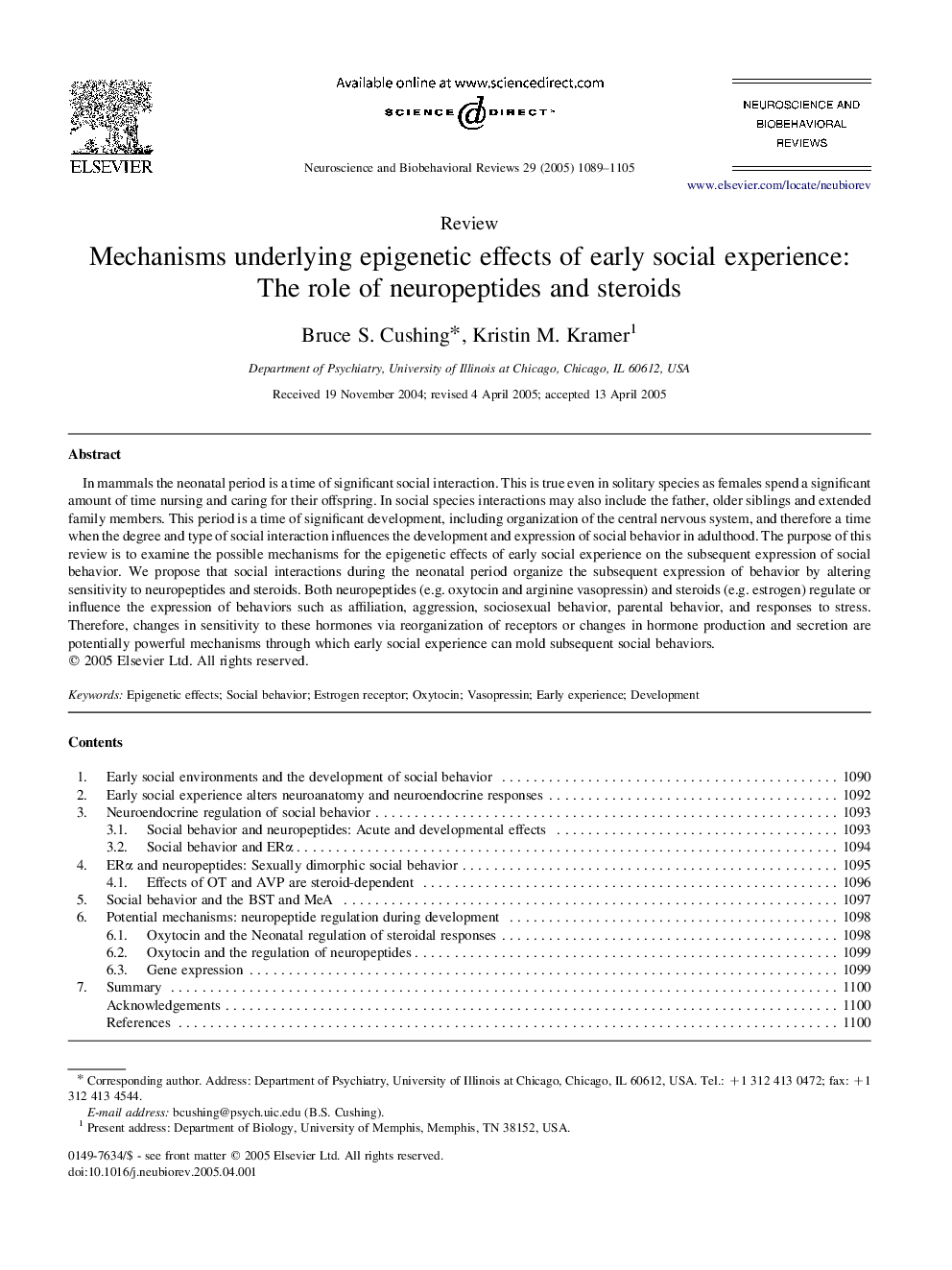| کد مقاله | کد نشریه | سال انتشار | مقاله انگلیسی | نسخه تمام متن |
|---|---|---|---|---|
| 10461894 | 924596 | 2005 | 17 صفحه PDF | دانلود رایگان |
عنوان انگلیسی مقاله ISI
Mechanisms underlying epigenetic effects of early social experience: The role of neuropeptides and steroids
دانلود مقاله + سفارش ترجمه
دانلود مقاله ISI انگلیسی
رایگان برای ایرانیان
کلمات کلیدی
موضوعات مرتبط
علوم زیستی و بیوفناوری
علم عصب شناسی
علوم اعصاب رفتاری
پیش نمایش صفحه اول مقاله

چکیده انگلیسی
In mammals the neonatal period is a time of significant social interaction. This is true even in solitary species as females spend a significant amount of time nursing and caring for their offspring. In social species interactions may also include the father, older siblings and extended family members. This period is a time of significant development, including organization of the central nervous system, and therefore a time when the degree and type of social interaction influences the development and expression of social behavior in adulthood. The purpose of this review is to examine the possible mechanisms for the epigenetic effects of early social experience on the subsequent expression of social behavior. We propose that social interactions during the neonatal period organize the subsequent expression of behavior by altering sensitivity to neuropeptides and steroids. Both neuropeptides (e.g. oxytocin and arginine vasopressin) and steroids (e.g. estrogen) regulate or influence the expression of behaviors such as affiliation, aggression, sociosexual behavior, parental behavior, and responses to stress. Therefore, changes in sensitivity to these hormones via reorganization of receptors or changes in hormone production and secretion are potentially powerful mechanisms through which early social experience can mold subsequent social behaviors.
ناشر
Database: Elsevier - ScienceDirect (ساینس دایرکت)
Journal: Neuroscience & Biobehavioral Reviews - Volume 29, Issue 7, 2005, Pages 1089-1105
Journal: Neuroscience & Biobehavioral Reviews - Volume 29, Issue 7, 2005, Pages 1089-1105
نویسندگان
Bruce S. Cushing, Kristin M. Kramer,